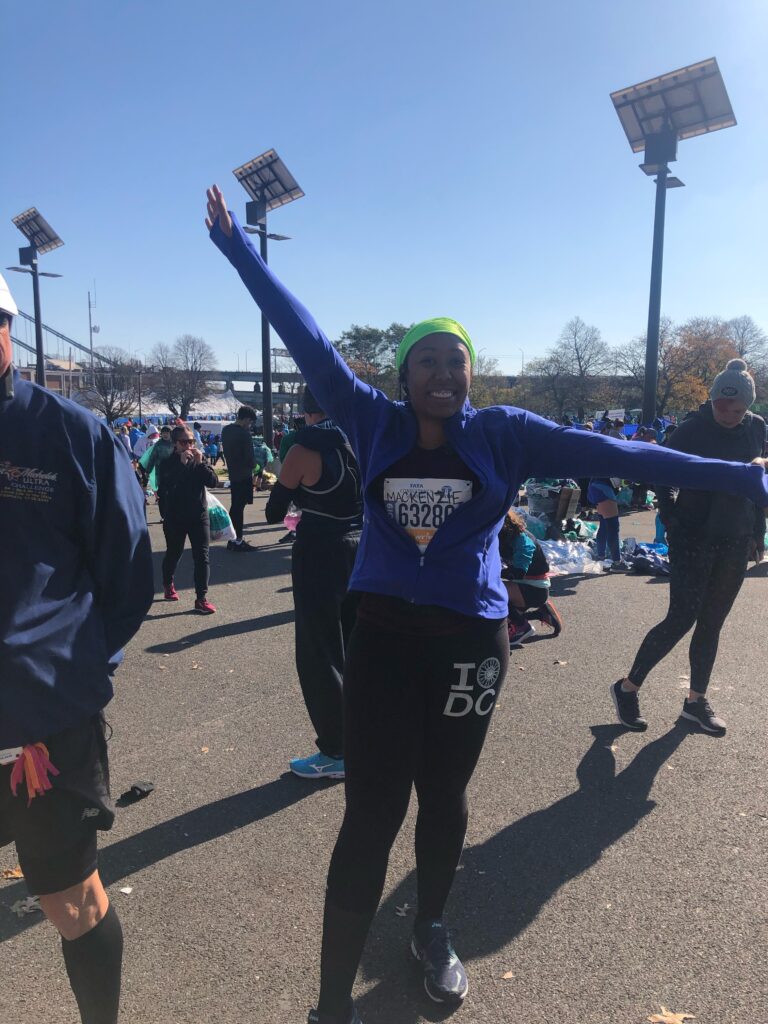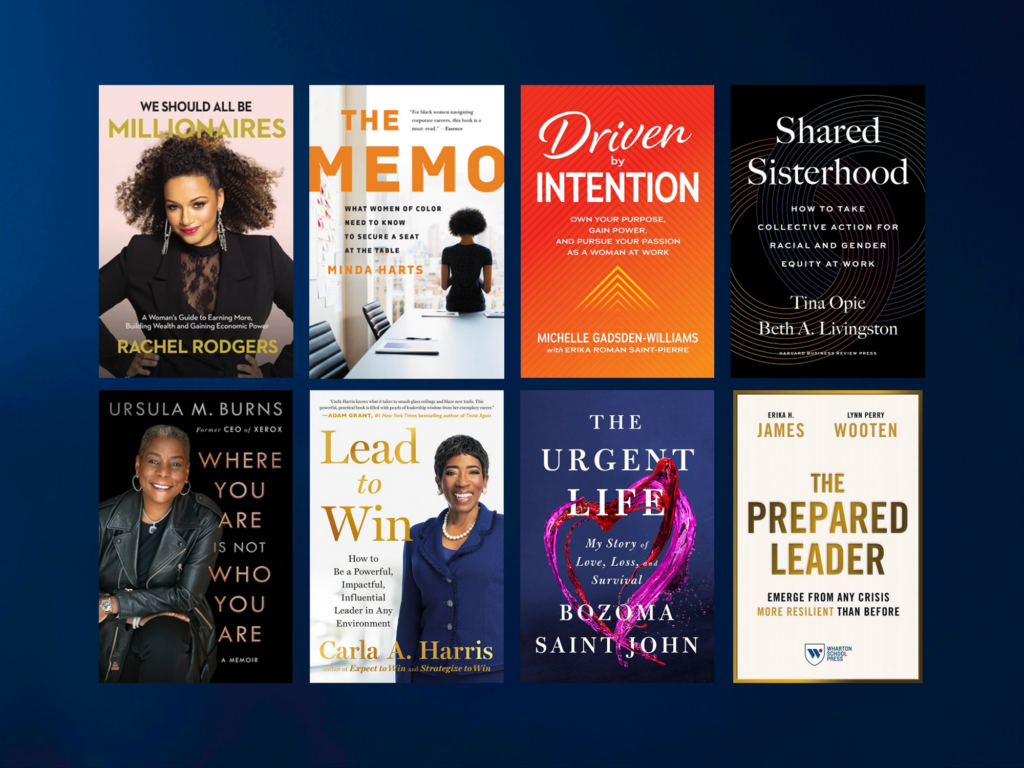Corporate athletes share their marathon and career success secrets

Marathon runners, MBAs and professionals share their lessons and advice
Workplace burnout has been a topic of discussion for decades.
For many years, employees and C-suite executives alike tried relying on their brain power alone to deal with stress, looking inward to cope and fix work issues. The resounding result? It wasn’t cutting it. With “burnout” now officially recognized by the World Health Organization (WHO), the responsibility for managing it has shifted away from the individual and towards the organization.
It’s a common misconception that the culprit behind burnout is simply working too long or too hard — research shows that other factors can be just as damaging. For example, a comprehensive report on psychosocial stress in the workplace published by the World Health Organization identified consistent evidence that “high job demands, low control, and effort–reward imbalance are risk factors for mental and physical health problems.” When the balance of deadlines, demands, working hours, and other stressors outweighs rewards, and relaxation – burnout is typically not far behind.
While the conversation about organizations stepping in (and up) for their teams remains at the top of the list to combat burnout, an increasing number of professionals are turning to athleticism and fitness to release stress, and build up endurance that translates to improved work performance.
Who are corporate athletes?
Researchers Jim Loehr and Tony Schwartz coined the term “corporate athletes” in 2001, shining a light on integrating the mind, body, spirit, and emotions for optimum workplace performance.
According to their study, employees and professional athletes face the same amount of stress in their fields; sometimes, employees face more.
Corporate athletes are business leaders who have to constantly cope with unprecedented demands in the workplace and have the physical strength to do so. Loehr and Schwartz noted, “If they [business leaders] were to perform at high levels over the long haul, we posited, they would have to train in the same systematic, multilevel way that world-class athletes do.”

Corporate athletes tend to ward off potentially overpowering feelings of stress by developing strong bodies and minds that embrace challenges, as opposed to being overwhelmed by them.
Research agrees that there are clear links between an employee’s health and work productivity. A study conducted by the U.K. government shows that positive employee well-being results in improved performance, productivity, and work quality. Another study conducted by IZA World of Labor claims that an increase in employee well-being leads to parallel increases in productivity.
If a healthy employee is more likely to deliver high-quality output, what takeaways can we gather from corporate athletes who understand the training and discipline required to prepare for physically demanding events? MBAchic is catching up with a few serial marathoners to get an inside look into how their focus on physical, emotional, and mental capacities translates into enduring professional success.
Whether a half marathon, a marathon, or a triathlon is your goal, the long-term gift of fitness transcends the short-term reward of completing a specific goal.
For founding Creative Director of Be Super Creative and President/Chief Strategy Officer of Black Creatives, Delanie West’s running journey began as a bucket list item. Each year she focuses time and attention on a new skill to master. What she discovered was that training became a form of self-care and self-reflection.
“I also selected running because with such a busy work and travel schedule I needed a workout that would give me the maximum in a short amount of time,” West recalls. “During this journey, I also was going through a divorce, so it was tremendous therapy for me, and an escape from the stress of work.”
West reached a point where she was running between two to three half marathons a month and transitioned into marathons and triathlons.
“Those experiences confirm that I can accomplish the most difficult tasks, and projects considering the timeline, strategy, and planning,” she says.
Vice President of Social Media for Who What Wear/Clique Brands MacKenzie Green was a Junior Olympic swimmer and D1 swimmer who arrived to marathon running after an injury signaled her swim retirement. She says marathons gave her the physical discipline that she missed from sports and the lasting gift of new perspectives on doing hard things.

“For me, I knew if I could overcome the mental block that kicks in around mile 20, then I had the discipline to tackle anything,” explains Green. “Every time I’ve crossed a marathon finish I have a newfound respect for myself and my grit that gets reactivated with every race.”
On what training has taught you about yourself: Founder of MBAchic Jeneta Hot says, “no matter how big the goal you set, you map out your plan and then focus on what’s in front of you: [in this case, literally] putting one foot in front of the other, and trusting the process. Training showed me that I am stronger, more patient and more flexible, than I previously realized, and that I can tackle almost anything with the right prep and mindset.”
How physical fitness fuels professional focus:
Incorporating fitness and athleticism into life has helped these corporate athletes become more focused professionals. While each experience is unique, training for an athletic event requires both physical and mental tenacity – building skills that create peak performance in corporate settings. Delivering on timelines is just as important in the world of fitness as it is for product development, marketing, tech, or finance in the office.
“You want to reach a physical goal? Running 26.2 miles or being prepared for the swim, bike, and run transitions for triathlon, for an event that happens on a particular day, on a particular month of a year? You have to plan your strategy, and you’ve got to be accountable for delivering on those incremental goals,” explains West. “If you don’t do the strategy work, or deliver on those training stage gates, you aren’t going to perform well.”
Green says to be a great leader or athlete – self-discipline is non-negotiable.
“To be a leader and a well-rounded one at that, you have to be comfortable with being uncomfortable,” says Green. “That can be physically, or mentally…I challenge myself athletically so I can mentally show up better for my team, but also to remind myself that I can endure and that I don’t throw in the towel.”
On how fitness has helped your professional/work “game”: “committing to a training program or weekly mileage requires a certain discipline, which certainly creeps into the rest of life,” says Hot, “there’s also clarity that comes with with having to cancel or bow out of things as your schedule fills up. Your decision making and time management muscles are on overdrive, and that strength and sharpening can’t help but translate over to your work.”
Juggling a demanding work schedule and physically demanding training schedule comes with a unique set of challenges.
However, with the right preparation, support, and mindset, these corporate athletes prove it is possible. One common pro tip? Get strategic about which events you choose to participate in. Coordinating business, personal, and course load calendars to prioritize available time is critical to developing a sustainable balance.
“I’ve finished a race, and had to hop a flight to Europe the next day, and ended up with severe swelling in my legs,” recalls West. “I didn’t consider planning the time I needed to recover because I jumped back into my business schedule too quickly.”
“Seneca tells us to treat the body rigorously so it’s not disobedient to the mind,” says Green. “While you are physically getting stronger, you’re also building willpower. You have to make time to do the hard thing because it makes you better, it’ll challenge you, and it’ll break you down. I would also tell someone to show up for themselves, and it’ll pay off in spades.”
On juggling work/training schedule: “planning things out ahead of time, backing into your race date and securing workout times on your calendar (including travel time, shower time and recovery / chill time) helps keep you on track. My Google Calendar runs the show at that point, and baking these in early on make it less likely I’ll miss a run. As you get into a regular rhythm (I stick to a Sunday-Tuesday-Thursday-Saturday run schedule), it gets easier to work around and your family, friends and colleagues get used to it, as well. Over the years, I also find that when I know my time is super booked up and I don’t have a ton of empty space on the calendar (anyone pursuing their MBA part-time while working can likely relate), I’m way more focused, efficient and present, wherever I am — at work or in life outside of the office.”

Planning your first race? Follow these top training tips:
Whether it means canceling a happy hour to prioritize training, or skipping the half-hour commute to the gym by opting to transform your neighborhood into your training ground, successful corporate athletes agree that there is no room for excuses (even if that means pulling out those winter running thermals or waterproof gear for unpredictable fall weather).
“Nothing takes a back seat to the miles you have to log weekly, there will absolutely be trade-offs and sacrifices,” says West.
“Having a supportive partner, making sure you have a babysitter, ensuring there’s a treadmill at the hotel or you’ve got a run route mapped out for business travel is crucial. Having a support system is key. A running group or accountability partner helps tremendously.”
“Start small and realistic, and be consistent with that habit,” suggests Green.
“If you want to run a marathon, start by building that mileage now with small sustainable habits. Consistency is a superpower. And the compound mental impact of showing up even when you don’t want to will show up in your life outside of athletics.”
Another recommendation? Put colleagues on notice, explaining you won’t be able to attend every post-meeting happy hour because you have to train.
“Every time you lace up your shoes or skip out on drinks so you can get enough sleep, you are investing in yourself and your discipline, and that’s invaluable,” adds Green.
“I compare the time and dedication for those training schedules [half marathon, marathon, triathlon] to the work we do for graduate studies,” explains West.
“Our friends and families know they won’t see much of us socially, during the duration of earning a graduate degree or training for an event! You’ll almost always find there is a senior executive on your team that is a runner/racer that understands the dedication level required for training.”
MBAchic asked for some of the go-to jams that belong on your next training playlist:
- “Cold Rock a Party” by MC Lyte featuring Missy Elliot, Bad Boy remix
- “Till I Collapse” by Eminem
- “Right Above It” by Lil Wayne
- “How Did This Get Made?” podcast
- Any song by Beyoncé

Photos from Delanie West, MacKenzie Green, Jeneta Hot, and Steven Lelham







